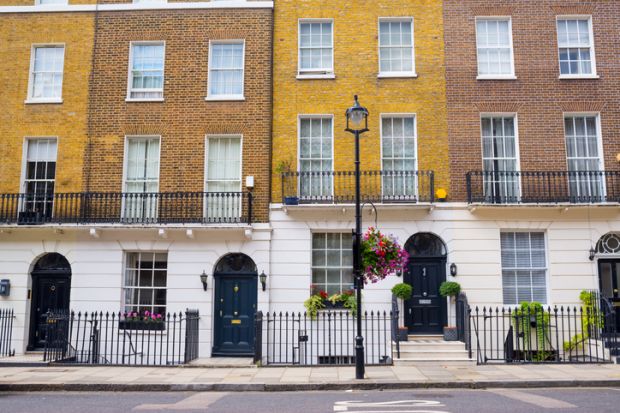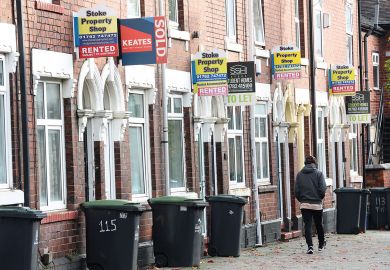London mayor Sadiq Khan’s housing plan for the capital has failed to deliver enough affordable student accommodation, according to a new report.
The London Plan was unveiled in 2021 as the Labour mayor’s landmark development strategy for how the city would develop over the next 20 to 25 years. But research by real estate firm CBRE and QX Global consultants suggests that it has failed to stimulate the building of much-needed affordable Purpose Built Student Accommodation (PBSA) in London.
In a city with more than 400,000 full-time students, the analysis found that only 3,100 affordable beds have secured planning consent since the plan was launched.
According to the research, the gap between demand for PBSA and available supply in London is so large that about 105,000 students are faced with an accommodation shortage.
As no PBSA beds with planning permission gained under the plan are yet operational, the firms claim that the delivery of affordable PBSA is being stifled by development viability and the complexity of the planning system.
Kirsten Dyer, director of living valuation and advisory at CBRE, said that delivery of PBSA is far below the levels required to support London’s domestic and international student body.
“The target of 3,500 rooms per annum is not being met, not enough universities are engaged in the issue, and a restricted group of developers dominate the market because of the challenges the London Plan now presents,” she added.
Mr Khan, who was recently elected for an unprecedented third term as mayor, set out in his strategy that rents for affordable rooms should not exceed 55 per cent of the maximum London maintenance loan, which is around £188 per week over 38 weeks.
However, the report found that median weekly rent for an en-suite bed in a PBSA in zone 1 for 2023-24 is £398, or £275 in zone 4.
David Tymms, a strategic adviser at QX Global Group, said the complex planning process has driven many developers out of the market, leaving only the largest universities.
“With just 3,100 affordable rooms consented to date and a tightening HMO [houses in multiple occupation] environment, the prospects for lower-income background students seeking to study in the capital look set to remain bleak for some time to come,” he added.
Mr Tymms said the capital will remain a “challenging environment” for developers, universities and students for some time.
A mayoral spokeswoman said that Mr Khan “continues to campaign to make housing more affordable in the capital”.
“Students are often some of those at the sharp end of a national cost-of living crisis and through his London Plan, Sadiq backs discounted affordable student accommodation in new developments which cap rents at levels linked to students’ maintenance loans for living costs. In 2021 and 2022 the mayor approved the most affordable student accommodation in a decade, supporting the need for more student homes in the city,” she said.
Register to continue
Why register?
- Registration is free and only takes a moment
- Once registered, you can read 3 articles a month
- Sign up for our newsletter
Subscribe
Or subscribe for unlimited access to:
- Unlimited access to news, views, insights & reviews
- Digital editions
- Digital access to THE’s university and college rankings analysis
Already registered or a current subscriber? Login








